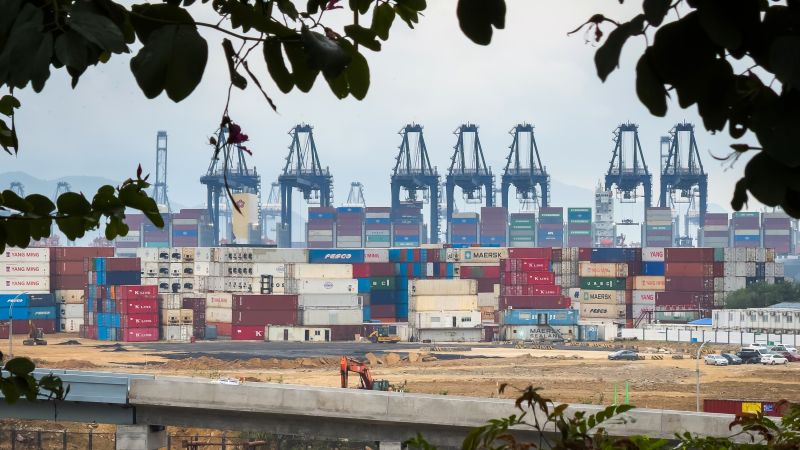The recent announcement from Commerce Secretary Howard Lutnick regarding tariffs under the Trump administration has ignited considerable discussion and concern among industry leaders and lawmakers alike. In a move perceived as a temporary solution, smartphones, laptops, and other electronic devices were exempted from certain tariffs. Lutnick, during an appearance on ABC News’ “This Week,” stated that while these electronics may be spared for the moment, they are expected to face additional levies in the near future, particularly under the semiconductor tariff, which he indicated would likely be rolled out within a month or two. This proclamation has sown confusion amidst an already convoluted landscape of tariffs affecting Chinese goods.
Lutnick highlighted that the tariffs specifically targeting various business sectors related to national security would be “not available for negotiation.” Such clear, non-negotiable stipulations add to concerns as these tariffs are expected to be implemented shortly. Compounding the uncertainty, a recent notice from the U.S. Customs and Border Protection exempted electronic goods from the staggering 145% tariffs imposed on goods from China. This development was met with mixed reactions; while some welcomed the relief, others, like Massachusetts Senator Elizabeth Warren, expressed outrage at what she characterized as chaos and corruption within the tariff policies. Warren criticized the unpredictable nature of the tariffs, asserting that investors are deterred by the government’s fluctuating stance.
In contrast, analysts from Wedbush Securities expressed optimism, labeling the exemption on electronics as “the best news possible for tech investors.” This assessment suggests that major companies in the tech sector, such as Apple, Nvidia, and Microsoft, are poised for some respite, at least in the short term. However, the broader implications of the Trump administration’s tariffs are noteworthy, as their introduction has led to significant market volatility, dampened consumer sentiment, and spooked investors regarding a potential economic downturn.
While Trump administration officials expressed various viewpoints on the announcement’s implications, they underscored a commitment to scrutinizing the national security ramifications of semiconductor imports. This scrutiny, referred to as a Section 232 study, could lead to additional tariffs specifically targeting electronic imports in the future. This potential for escalation has left many stakeholders in a state of apprehension regarding the future trajectory of U.S.-China trade relations.
Compounding the situation, tariffs on Chinese imports are currently at an astounding 145%, while the Chinese government has retaliated with tariffs of 125% on U.S. exports. President Xi Jinping’s statements reflect a steadfast approach to these tariffs, emphasizing that China will not increase their tariffs beyond that threshold. This ongoing tit-for-tat dynamic was echoed by other officials in the Trump administration, who commented on the negotiations regarding tariffs with numerous countries, highlighting that only negotiations with China appear chaotic.
Amidst this backdrop, former Treasury Secretary Larry Summers offered a critical assessment of the tariff strategy. His remarks on CNN’s “Fareed Zakaria GPS” portrayed the tariffs as possibly the gravest harm to economic policy since World War II, arguing that the policies are misguided regarding competitiveness, unemployment, and inflation. With opinions like those of billionaire investor Ray Dalio, who labeled the tariffs as “very disruptive,” it becomes evident that there is significant concern concerning the potential for economic recession. Major financial firms like JPMorgan and Goldman Sachs have also raised estimates regarding the likelihood of recession, reflecting a marked increase in caution among market analysts.
On a broader scale, as representatives from the Trump administration continue to engage with the media, it is clear that the response to tariffs will play a critical role in shaping not only U.S.-China relations but also the overall economic landscape of the United States in the months and years to come. The uncertain nature of the tariffs and their enforcement stirs intense debate, with many seeking clarity in a policy arena that appears mired in confusion and unpredictability.



